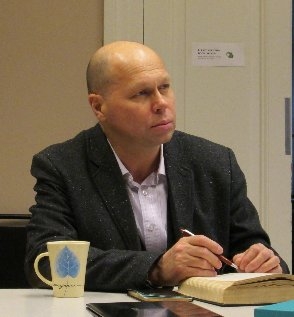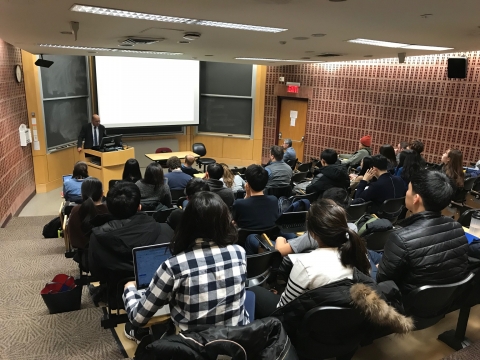

Moon Family Distinguished Lectures
Stitler Hall B21
Security problem of the Korean Peninsula in the context of the DPRK development. (Kim Jong Un and inter-Korean relations in early 2018)
Division of the Korean peninsula occurred under the influence of external forces. Japan occupied Korea and made it its colony. The United States and the Soviet Union has liberated Korea but promoted movement of the Korean left forces to the North and right forces to the South. Cold war and the Korean War have strengthened division of Korea. The end of the Cold war brought hopes of peace. But while the Soviet Union and Eastern European counties have diplomatically recognized South Korea, the U.S. and Japan have not diplomatically recognized North. This situation resulted in continuous instability on the Korean peninsula.
Changes of administrations in the South and “supreme leaders” in the North also changed the level of tension on the peninsula. But as the international resolve of the “Korean question” still has not been achieved, the inter-Korean contacts in principle were unable to bring the “final solution” of the Korean issue.
Change of power in the North in late 2011 made situation more complicated. North Korean society is built on the idea of the central role of the all-mighty leader. Previous North Korean leaders had their strong charisma. Kim Il Sung: fighter for independence, founder of North Korean state. Kim Jong Il: the developer of the Juche and Seongun (Priority of army) ideology. The last leader of North Korea, Kim Jong Un, came to power suddenly, without necessary “charismatic preparation activities”. So after his coming to power his principal aim was “construction of his charismatic image as all-mighty brave young leader”.
The talk explains last steps of the new North Korean leader Kim Jong Un who has proposed North Korean participation in Pyongchang Winter Olympic Games in the context of DPRK internal development.
Sergei O. Kurbanov is a professor and the chair of the newly established Department of Korean Studies at St. Petersburg University. In 1997, he developed and opened the “Korean History Major” BA Program.
His spheres of interest are wide, including the general history of Korea (with books published in 2002 and 2009), Korean Confucianism (book in 2007), and the everyday lives of North and South Koreans in 1987 – 2000s (books in 2013 and 2017). He also wrote and compiled a biography (published in 2016) of Kim Gu, the head of the Provisional government of the Republic of Korea in China, as well as a book on the theory of historical science (book in 2016).
Currently, Prof. S.O. Kurbanov has undertaken a project to write a book on the history of North Korea in 2000 – 2018.
 James Joo-Jin Kim Center for Korean Studies
James Joo-Jin Kim Center for Korean Studies